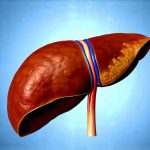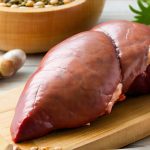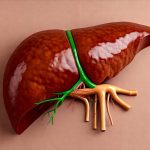The liver is often hailed as the body’s detoxification powerhouse, but its role extends far beyond simply filtering toxins. It’s intricately involved in digestion, nutrient absorption, energy storage, and hormone regulation. A frequently overlooked aspect of optimal liver function is its impact on bile production and flow – a process crucial for effectively breaking down and absorbing fats, fat-soluble vitamins (A, D, E, and K), and eliminating certain waste products from the body. When liver function slows—often due to dietary habits, stress, or environmental factors—bile flow can become sluggish, leading to a cascade of digestive issues that many people struggle with without realizing the root cause lies within their liver’s capacity.
Postprandial discomfort – the unpleasant symptoms experienced after eating – is often dismissed as simple indigestion or food intolerance. However, these seemingly isolated events can be symptomatic of deeper imbalances, frequently stemming from impaired bile flow and compromised digestive processes. A sluggish liver doesn’t produce enough bile to efficiently emulsify fats, leading to bloating, gas, abdominal pain, diarrhea, or constipation. Furthermore, poor fat digestion hinders the absorption of essential nutrients, potentially contributing to deficiencies and a weakened immune system. Understanding this connection between liver health, bile flow, and postprandial digestive issues is key to addressing chronic discomfort and restoring overall wellbeing. It’s also important to consider how frequent snacking might impact this delicate balance.
The Intricate Relationship Between Liver Function & Bile Flow
The liver’s primary role in digestion isn’t about breaking down food itself; it’s about preparing fats for breakdown. Think of bile as a natural detergent, emulsifying large fat globules into smaller droplets that are then easier for pancreatic enzymes to digest. This process is essential because fats aren’t water-soluble, meaning they can’t be effectively processed by the digestive system without this preparatory step. The liver continuously produces bile, storing it in the gallbladder (when present) and releasing it when needed—typically triggered by the presence of fats in the small intestine. A healthy liver ensures a consistent supply of high-quality bile, maintaining efficient fat digestion and nutrient absorption.
Sluggish liver function directly impacts both the quantity and quality of bile produced. When the liver is overloaded or compromised, it struggles to produce sufficient amounts of bile. Additionally, the composition of bile can change, becoming thicker and more concentrated with toxins. This thicker bile has difficulty flowing smoothly through the biliary ducts, leading to stagnation and a buildup of pressure. This stagnation further exacerbates liver dysfunction, creating a vicious cycle where impaired bile flow worsens liver function, which then further impairs bile flow. The impact isn’t limited to fat digestion either; poor bile flow can also hinder the elimination of toxins processed by the liver, contributing to systemic inflammation and other health concerns. Factors like irregular eating habits can certainly contribute to this cycle.
Furthermore, factors such as chronic stress, exposure to environmental toxins (pesticides, pollutants), a diet high in processed foods, and excessive alcohol consumption can all contribute to decreased liver function and subsequent issues with bile flow. Addressing these underlying causes is essential for restoring optimal liver health and digestive balance. It’s important to remember that the gallbladder’s role, while significant, is dependent on a healthy liver providing adequate bile. Even without a gallbladder (post-cholecystectomy), maintaining good liver function remains crucial for digestion. Understanding how medications can affect the liver is also important, as these often contribute to impaired bile production.
Postprandial Digestive Issues & Bile Insufficiency
Postprandial digestive issues are incredibly common, ranging from mild discomfort to debilitating symptoms that significantly impact quality of life. Many people attribute these issues to food sensitivities or intolerances, and while those can certainly play a role, they often aren’t the primary cause. In many cases, undiagnosed bile insufficiency is the underlying culprit. When fat isn’t properly emulsified due to insufficient bile, it leads to several characteristic symptoms: bloating, gas, abdominal cramping, nausea, and even diarrhea or constipation – depending on how the digestive system attempts to cope with the maldigested fats.
The type of food often exacerbates these issues. Foods high in fat—fried foods, fatty meats, rich sauces—are typically the biggest triggers, as they require more bile for proper digestion. However, even seemingly healthy fats from sources like avocados or nuts can cause problems if bile flow is severely compromised. Undigested fat also ferments in the gut, contributing to gas and bloating, and disrupting the delicate balance of the gut microbiome. This disruption further impairs digestion and nutrient absorption, creating a cycle of digestive distress. It’s essential to recognize that these symptoms aren’t just about what you eat; they are often about your body’s ability to process what you eat. Avoiding cold beverages can also help, as these may further stress the digestive system.
Beyond the immediate digestive discomfort, chronic bile insufficiency can lead to more serious long-term consequences. Poor fat absorption hinders the uptake of vital fat-soluble vitamins (A, D, E, and K), leading to deficiencies that can impact various bodily functions. For example, vitamin D deficiency is linked to weakened immunity, bone health issues, and mood disorders. Furthermore, undigested fats can bind with calcium in the gut, reducing its absorption and potentially increasing the risk of osteoporosis.
Supporting Healthy Bile Flow Through Dietary Strategies
Dietary modifications are often the first line of defense when addressing sluggish bile flow. Focusing on foods that support liver detoxification and stimulate bile production is paramount.
- Increase bitter greens: Foods like dandelion greens, arugula, radicchio, and endive contain compounds called cholagogues which encourage bile secretion. Incorporating these into salads or sautéing them as a side dish can significantly enhance bile flow.
- Healthy fats in moderation: While excessive fat intake can overwhelm a sluggish liver, completely eliminating healthy fats isn’t the answer. Focus on consuming moderate amounts of high-quality fats from sources like avocados, olive oil, and fatty fish – these provide essential nutrients and support overall health.
- Reduce processed foods & sugar: Processed foods are often laden with additives and toxins that burden the liver, while excessive sugar intake can contribute to inflammation and impaired liver function. Minimizing these substances allows the liver to focus on its core functions, including bile production.
Furthermore, incorporating spices like turmeric (containing curcumin), ginger, and black pepper can support liver health and improve digestion. Turmeric is known for its anti-inflammatory properties, while ginger aids in digestion and reduces nausea. Black pepper enhances the absorption of curcumin, maximizing its benefits. Regularly drinking warm lemon water upon waking can also stimulate bile production and hydration.
The Role of Hydration & Liver Detoxification Support
Adequate hydration is crucial for overall health, but it plays a particularly important role in supporting healthy bile flow. Water helps to thin bile, making it easier to flow through the biliary ducts. Aiming for at least 8 glasses of water per day – and even more if you’re physically active or live in a hot climate – can make a significant difference. Herbal teas, such as dandelion root tea or milk thistle tea, can also provide additional hydration and liver support.
Beyond simple hydration, incorporating specific herbs and supplements that promote liver detoxification can be beneficial. Milk thistle is renowned for its hepatoprotective properties, helping to protect the liver from damage and enhance its regenerative capacity. Artichoke extract stimulates bile production and improves digestion. However, it’s crucial to consult with a healthcare professional before starting any new supplement regimen, as some herbs can interact with medications or have contraindications. It is also important to be aware of how certain lifestyle factors like tight jeans may contribute to digestive issues, impacting bile flow.
Addressing Underlying Stress & Lifestyle Factors
While dietary changes and supplementation are important, addressing the underlying causes of liver dysfunction is essential for long-term health. Chronic stress significantly impacts liver function by increasing cortisol levels and promoting inflammation. Implementing stress management techniques such as mindfulness meditation, yoga, deep breathing exercises, or spending time in nature can help to mitigate these effects.
Regular physical activity also supports liver health by improving circulation, reducing inflammation, and promoting detoxification. Aim for at least 30 minutes of moderate-intensity exercise most days of the week. Finally, minimizing exposure to environmental toxins – pesticides, pollutants, chemicals in cleaning products – is crucial for protecting the liver from overload. Choose organic foods whenever possible, use natural cleaning products, and ensure adequate ventilation in your home and workplace. By addressing these lifestyle factors, you can create a supportive environment for optimal liver function and digestive health. The impact of cancer on the digestive system should also be considered as it significantly impacts liver function. Similarly, understand medications’ impact on liver health to make informed choices about your treatment plan. Lastly, avoid lifestyle factors such as smoking that can greatly damage the liver and gallbladder function.


















